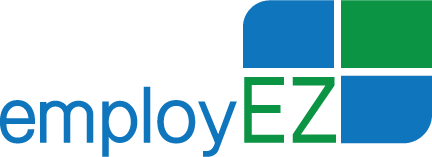
Offering Health Insurance to Employees is Good for Company Health
A healthy workforce is a productive workforce. By offering health insurance to employees, businesses contribute to overall employee well-being, providing employees easier ways to take better care of themselves and their families and fostering early detection and treatment of illnesses. This proactive approach not only reduces absenteeism but also amplifies productivity, forming a symbiotic relationship between company and employee. Beyond the obvious value offering health insurance brings to employees, there are many ways offering health insurance is good for business.
Providing Employee Benefits Helps Companies Attract and Retain Talent
Establishing yourself as an employer that offers comprehensive employee benefits can create a competitive advantage, helping you not only attract great candidates, but avoid losing the talent and experience you already have on your team. With so many job candidates looking for more than a good salary, exploring your options for providing healthcare and ultimately lowering your turnover rates makes good business sense. Offering employee benefits can be easier and more cost-effective than you think when you work with a Professional Employer Organization (PEO). A PEO can leverage its size and purchasing power to negotiate far better rates for health benefits, workers’ compensation and more, and pass those savings on to you.
Good Health Can Boost Employee Productivity, Morale and Engagement
Caring for employees goes beyond a paycheck; it extends to their well-being. Offering health insurance helps alleviate the financial burden of medical expenses for your employees. Additionally, many health plans include support services to address mental health issues as well as programs that are proactive in encouraging preventive care and healthier living. This can help create a more positive work environment that significantly impacts company culture, morale, and overall performance.
Tax Advantages Create a Win-Win Scenario
Often overlooked, the tax advantage of offering health insurance under a cafeteria plan is a win-win scenario. Health insurance premiums, deducted pretax, reduce taxable income for both employees and employers. This strategic leverage helps everyone manage costs more effectively.
Offering Health Insurance Helps Larger Companies Comply with the ACA
For larger companies – generally those with 50 or more full-time equivalent employees – offering health insurance is essential for complying with the Affordable Care Act (ACA). The insurance offered must meet ACA standards and non-compliance can result in penalties. But it’s important to note that you do not have to be a large employer to offer health insurance to your employees. Increasingly, smaller companies are finding tremendous value in providing employee benefits and more opportunities to do so affordably thanks to the help of a PEO.
Ask Us About Employee Benefits
The experts at employEZ believe strongly that smaller companies and their employees deserve the benefits of larger corporations. Let us identify the right PEO and Fortune 500-level benefits for your needs. Our PEOs have already navigated the complexities of evaluating healthcare options and created partnerships that give you plenty of choice and value. Additionally, our HR specialists can help you administer employee benefits so you don’t have to keep up with regulations or handle the ins and outs of providing healthcare. Reach out here to learn more.

